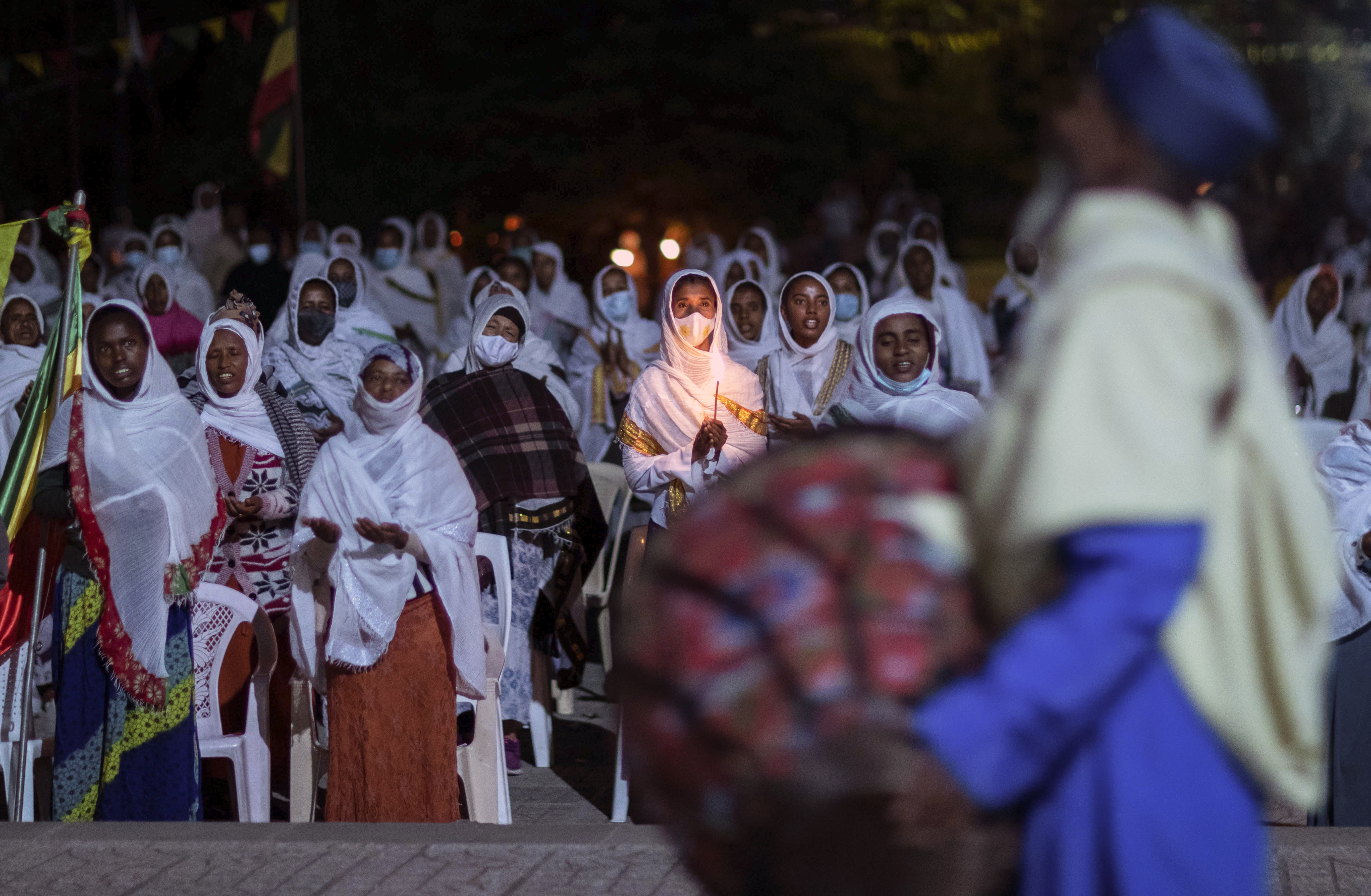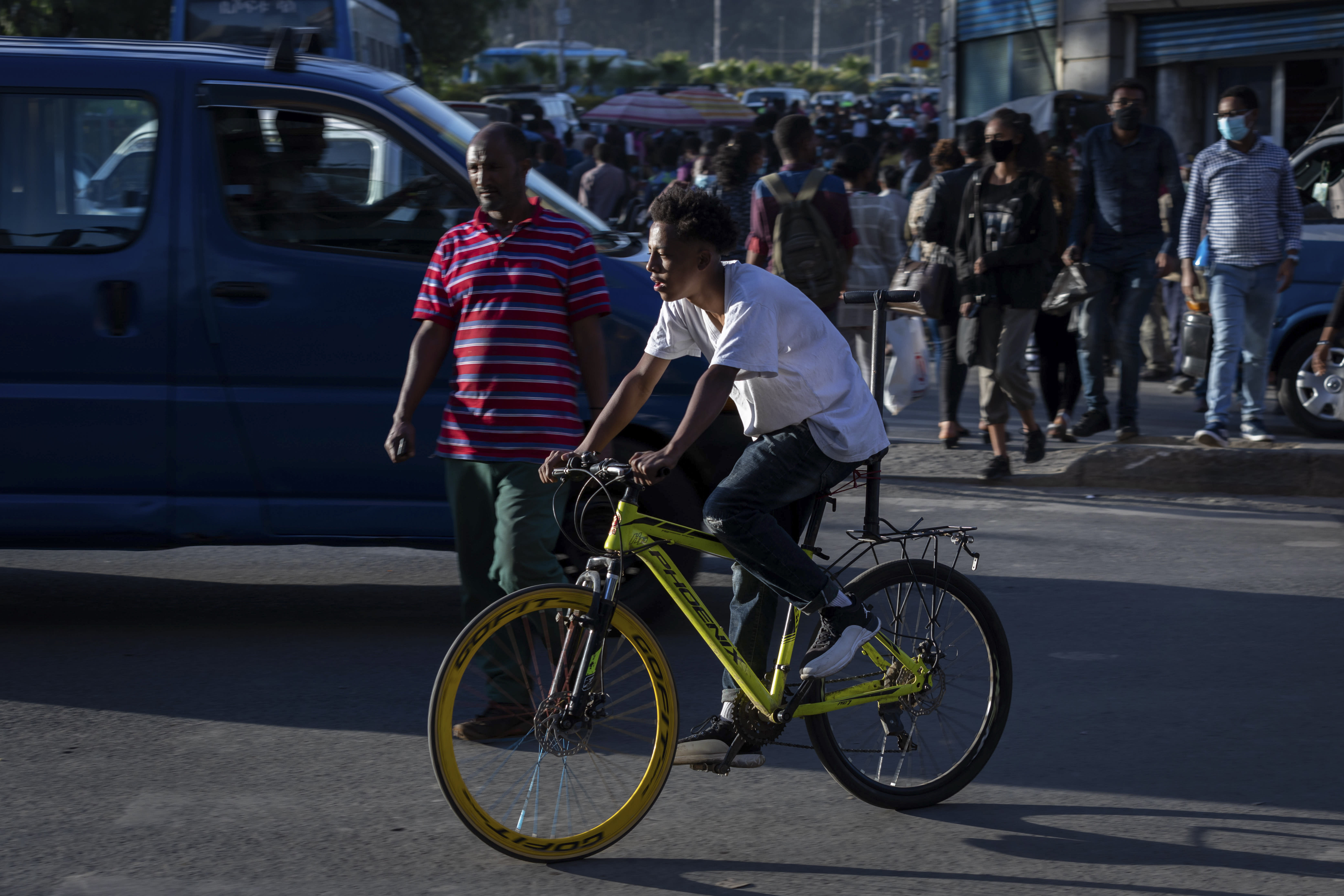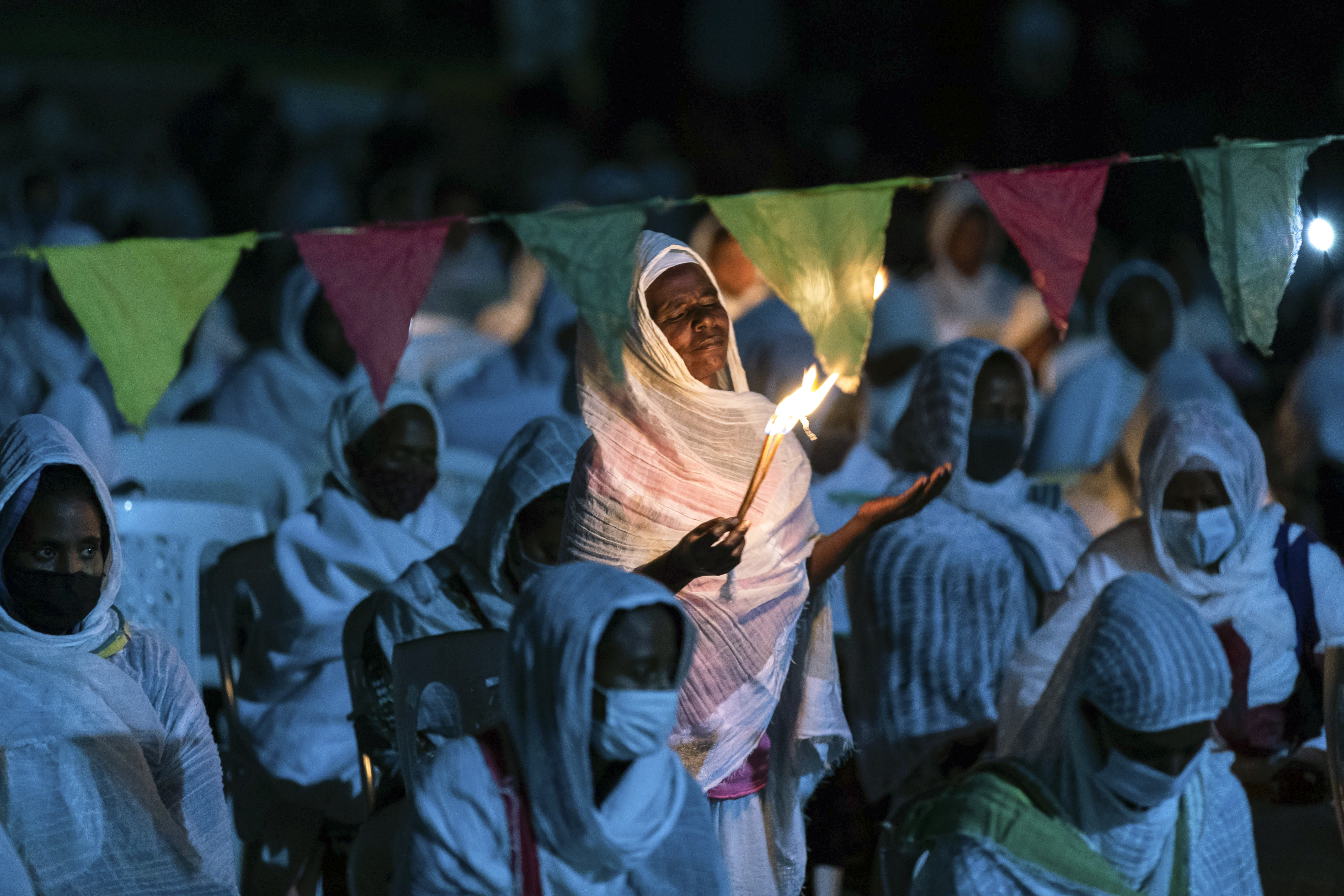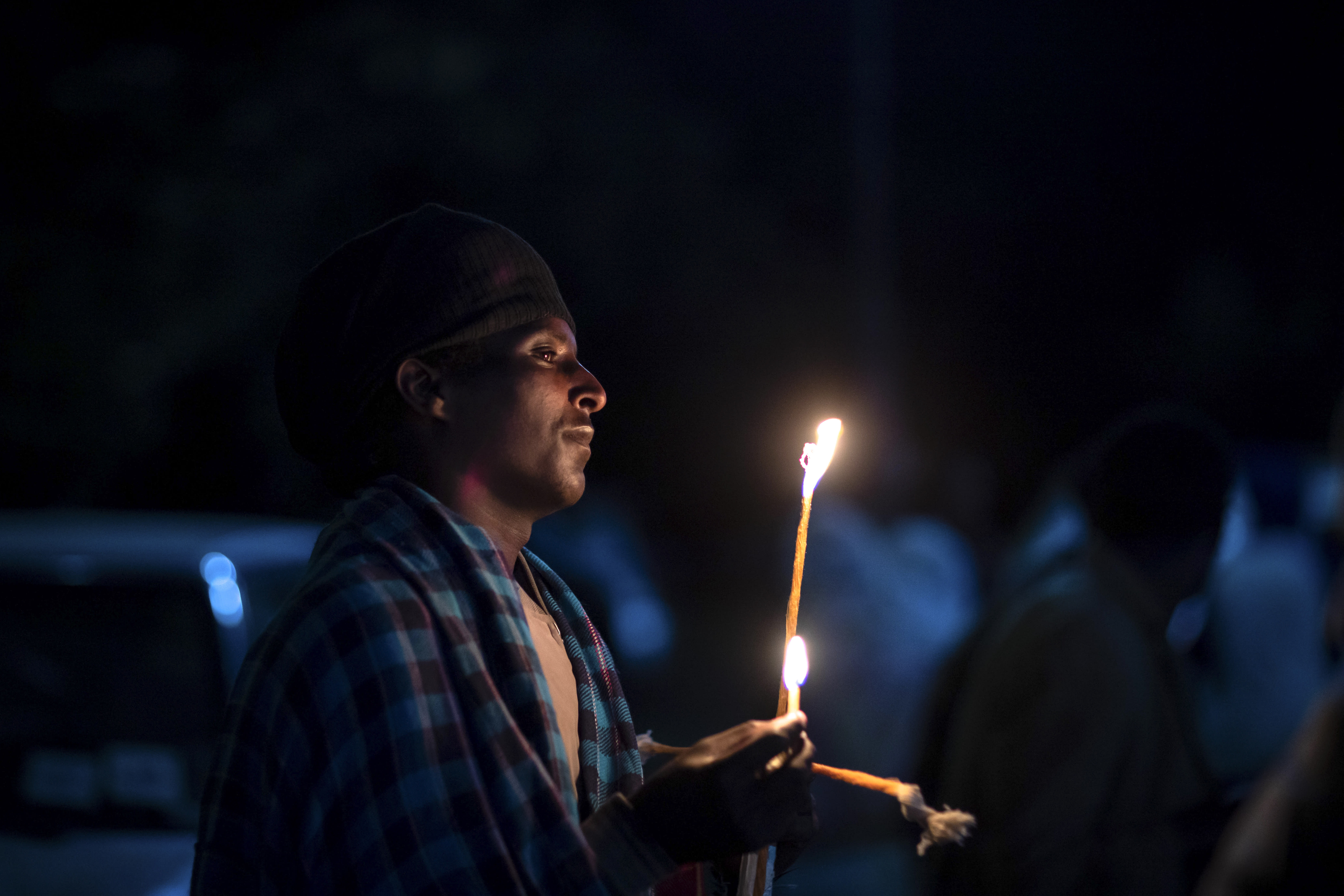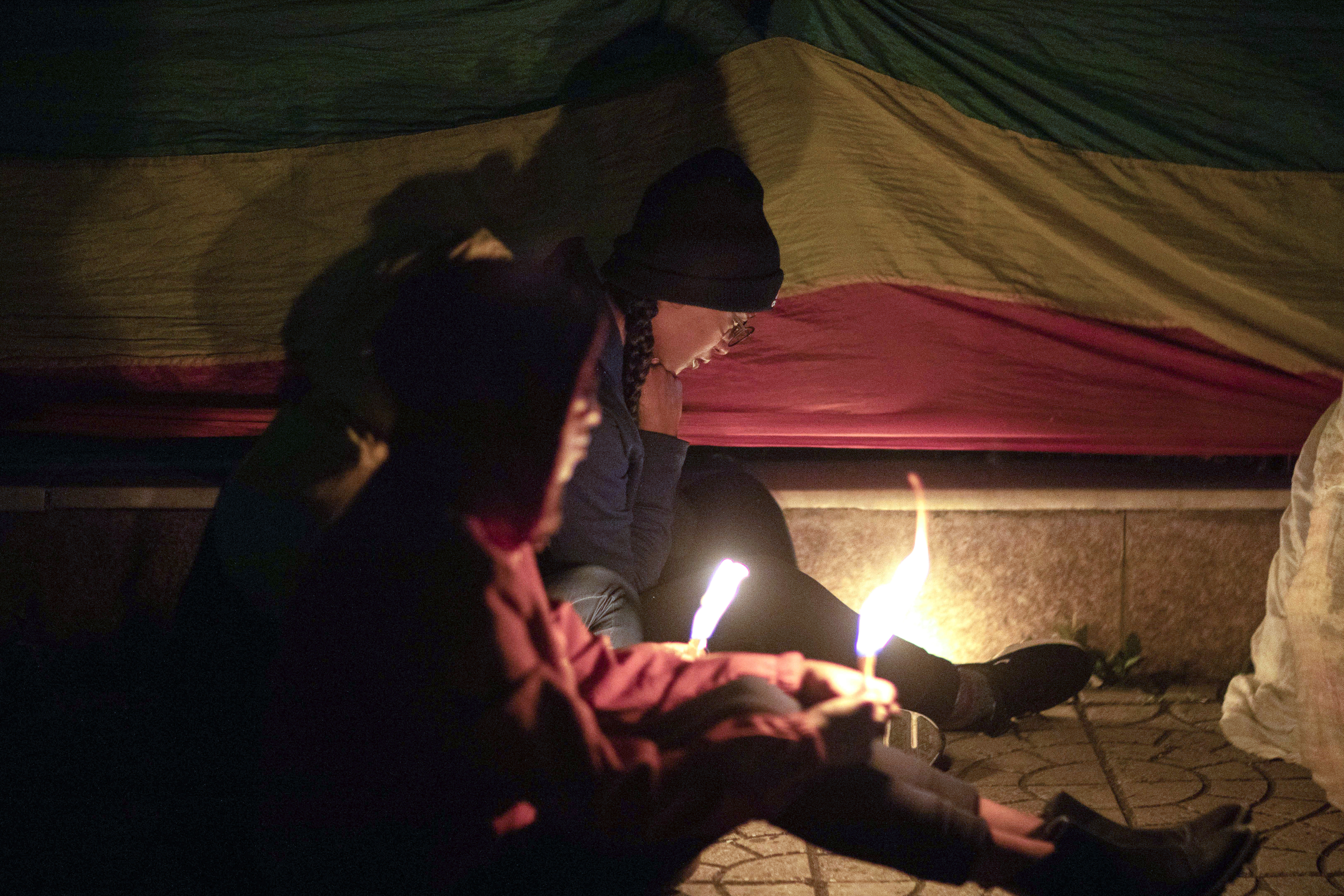Counties with worst virus surges overwhelmingly voted Trump
U.S. voters went to the polls starkly divided on how they see President Donald Trump’s response to the coronavirus pandemic. But in places where the virus is most rampant now, Trump enjoyed enormous support.
© Provided by The Canadian Press
An Associated Press analysis reveals that in 376 counties with the highest number of new cases per capita, the overwhelming majority — 93% of those counties — went for Trump, a rate above other less severely hit areas.
Most were rural counties in Montana, the Dakotas, Nebraska, Kansas, Iowa and Wisconsin — the kinds of areas that often have lower rates of adherence to social distancing, mask-wearing and other public health measures, and have been a focal point for much of the latest surge in cases.
Taking note of the contrast, state health officials are pausing for a moment of introspection. Even as they worry about rising numbers of hospitalizations and deaths, they hope to reframe their messages and aim for a reset on public sentiment now that the election is over.
“Public health officials need to step back, listen to and understand the people who aren’t taking the same stance” on mask-wearing and other control measures, said Dr. Marcus Plescia of the Association of State and Territorial Health Officials.
“I think there’s the potential for things to get less charged and divisive," he said, adding that there’s a chance a retooled public health message might unify Americans around lowering case counts so hospitals won’t get swamped during the winter months.
The electoral divide comes amid an explosion in cases and hospitalizations in the U.S. and globally.
The U.S. broke another record in the 7-day rolling average for daily new cases, hitting nearly 90,000. The tally for new cases Thursday was on track for another day above 100,000, with massive numbers reported all around the country, including a combined nearly 25,000 in Texas, Illinois and Florida. Iowa and Indiana each reported more than 4,000 cases as well.
The AP’s analysis was limited to counties in which at least 95% of precincts had reported results, and grouped counties into six categories based on the rates of COVID-19 cases they’d experienced per 100,000 residents.
Polling, too, shows voters who split on Republican Trump vs. Democrat Joe Biden differed on whether the pandemic is under control.
Thirty-six per cent of Trump voters described the pandemic as completely or mostly under control, and another 47% said it was somewhat under control, according to AP VoteCast, a nationwide survey of more than 110,000 voters conducted for the AP by NORC at the University of Chicago. Meanwhile, 82% of Biden voters said the pandemic is not at all under control.
The pandemic was considered at least somewhat under control by slim majorities of voters in many red states, including Alabama (60%), Missouri (54%), Mississippi (58%), Kentucky (55%), Texas (55%), Tennessee (56%) and South Carolina (56%).
In Wisconsin, where the virus surged just before the election, 57% said the pandemic was not under control. In Washington state, where the virus is more in control now compared to earlier in the year, 55% said the same. Voters in New York and New Hampshire, where the virus is more controlled now after early surges, were roughly divided in their assessments, similar to voters nationwide.
Trump voters interviewed by AP reporters said they value individual freedom and believed the president was doing as well as anyone could in response to the coronavirus.
Michaela Lane, a 25-year-old Republican, dropped her ballot off last week at a polling site at an outdoor mall in Phoenix. She cast her vote for Trump.
“I feel like the most important issue facing the country as a whole is liberty at large,” Lane said. “Infringing on people’s freedom, government overrule, government overreach, chaos in a lot of issues currently going on and just giving people back their rights.”
About half of Trump voters called the economy and jobs the top issue facing the nation, roughly twice the percentage who named the pandemic, according to VoteCast. By contrast, a majority of Biden voters — about 6 in 10 — said the pandemic was the most important issue.
In Madison, Wisconsin, Eric Engstrom, a 31-year-old investment analyst and his wife, Gwen, voted absentee by mail in early October.
Trump’s failure to control the pandemic sealed his vote for Biden, Engstrom said, calling the coronavirus the most immediate threat the nation faces. He and his wife are expecting their first child, a girl, in January and fear “the potential of one of us or both of us being sick when the baby is born,” he said.
Engstrom called Trump's response to the virus abysmal. “If there was any chance that I was going to vote for Trump, it was eliminated because of the pandemic,” he said.
The political temperature has added to the stress of public health officials, Plescia said. “Our biggest concern is how long can they sustain this pace?” he said.
Since the start of the pandemic, 74 state and local public health officials in 31 states have resigned, retired or been fired, according to an ongoing analysis by AP and Kaiser Health News.
As the election mood dissipates, rising hospitalizations amid colder weather create “a really pivotal moment" in the pandemic, said Sema Sgaier, executive director of the Surgo Foundation, a Washington, D.C.-based non-profit that worked with Harvard University-affiliated Ariadne Labs to develop a tool for estimating vaccine needs in states.
“We really need to get our act together. When I say ‘we’ I mean collectively,” Sgaier said. Finding common ground may become easier if one of more of the vaccine candidates proves safe and effective and gains government approval, she said.
“The vaccine provides the reset button,” Sgaier said.
Dr. Anthony Fauci may be another unifying force. According to VoteCast, 73% of voters nationwide approve of the way Fauci, the director of the National Institute of Allergy and Infectious Diseases, has been handling the pandemic.
Even among Trump voters, 53% approve of Fauci's performance. About 9 in 10 Biden voters approve.
___
Johnson reported from Washington state. Deshpande reported from Chicago and Fingerhut reported from Washington, D.C. AP reporters Todd Richmond in Madison, Wisconsin, and Terry Tang in Phoenix contributed.
Carla K. Johnson, Hannah Fingerhut And Pia Deshpande, The Associated Press
Midwestern states with few virus rules have low unemployment
OMAHA, Neb. — Five of the six states with the nation’s lowest unemployment rates are in the Midwest, have Republican governors and have almost no restrictions intended to slow the spread of the coronavirus.
© Provided by The Canadian Press
NOV 2, 2020
The governors say their decisions not to impose harsher restrictions are paying off with fewer business closures and more hiring reflected in the strong jobless numbers. But economists say it’s not so simple. Although businesses that are struggling during the pandemic can benefit when governors opt not to require masks or limit in-door gatherings, other factors may play an even bigger role in producing such low unemployment rates.
And those same rules that could initially help the states’ economies also are blamed for their leading the nation in coronavirus infection rates, raising questions about whether their hands-off approach is sustainable. North Dakota and South Dakota have the most cases per capita in the U.S., and Nebraska and Iowa aren’t far behind.
“If hospitalization and death rates increase, then you have a motivation by politicians to close the economy down. That would be very deadly and push unemployment rates back up,” said Ernie Goss, an economist at Creighton University in Omaha.
For now, though, those Midwestern states have a lock atop the unemployment rankings, far below the national average rate for September of 7.9%. Nebraska leads the nation with a 3.5% unemployment rate, followed by South Dakota, Vermont, North Dakota, Iowa and Missouri.
Most of the Midwestern governors imposed some restrictions last spring, but they were among the first to ease them, arguing that they needed to balance efforts to slow the virus’ spread with the need for a robust economy.
“I’ve got to believe that if you shut down harder, you’re going to see a more severe impact to your industries and the longer you’re shut down, the harder it’s going to be for those industries to rebound,” Nebraska Gov. Pete Ricketts told The Associated Press.
Missouri Gov. Mike Parson, who tested positive for COVID-19 in September, has touted a balanced approach to coping with the pandemic. And Iowa Gov. Kim Reynolds urged residents not to let the virus dominate their lives.
In South Dakota, Gov. Kristi Noem said: “There’s consequences to what we’ve seen happen in other states — that shutting down businesses, stopping people’s way of life has some devastating impacts. We’re taking a very balanced approach.”
In contrast, Vermont Gov. Phil Scott, a Republican, has worked aggressively to tamp down the virus, including closing some businesses in the spring and imposing a mask mandate. Vermont now has one of the nation’s lowest COVID-19 infection rates along with the third-lowest unemployment rate.
Like the Midwestern states, Vermont is largely rural with industries that weren’t hurt as badly by the pandemic.
Economists say that’s not a coincidence, noting that states dominated by agriculture and some kinds of manufacturing were able to operate closer to normal and managed to bounce back more quickly. That contrasts with states that rely on tourism, such as California, Nevada and Hawaii, which have the nation’s highest unemployment rates.
“The economy of a rural state has a different structure, so more of the people work in industries that wouldn’t really be disrupted by a need for social distancing like agriculture,” said Eric Thompson, who leads the Bureau of Business Research at the University of Nebraska-Lincoln.
The Midwestern states already had ultra-low unemployment rates before the pandemic, and they benefitted early on from a lack of population density, with plenty of wide-open spaces and few major cities where it would be harder to avoid catching the virus. More recently, though, many of those rural areas have seen some of the nation’s highest virus rates.
Even in industries like meatpacking that initially were devastated by workers catching COVID-19, the companies have managed to make changes that have allowed their operations to nearly return to normal.
Thompson said a lack of restrictions may have been most important in the spring. At the height of the shutdowns in April, Nebraska’s unemployment rate peaked at 8.7%, which was slightly more than half the national rate of 14.7% at that time.
Nathan Kauffman, Omaha branch executive of the Federal Reserve Bank of Kansas City, said fewer businesses closed in these states because many of them are in what are considered essential industries.
Ricketts agreed that Nebraska’s mix of industries played a significant role in helping the state’s economy.
“The kinds of things that we’re strong in are agriculture, manufacturing, finance and technology. You’ve just got industries that are not going to be as impacted by a pandemic,” Ricketts said.
But even if business has remained better in these states, that doesn’t mean they have been completely spared. Restaurants, hotels and other types of businesses are still struggling because people remain wary of resuming their normal shopping patterns, and those economic costs could rise amid spikes in virus rates.
Despite the low unemployment figures, all of the states now have fewer jobs than before the pandemic hit. Nationally, the economy has regained only about half of the 22 million jobs that were lost.
Still, many Midwestern business owners and leaders say they appreciate their governors’ lighter touch.
In Rapid City, South Dakota, Black Hills Bagels never had to close because the wholesale side of its operation continued providing products to grocery stores, and its retail store turned to drive-thru and delivery options, owner Debra Jensen said. It even had trouble hiring the workers it needed this year because unemployment remained so low.
“I’m just happy that the state and the folks in South Dakota made the right decisions to make sure our economy didn’t just bottom out,” Jensen said.
Arik Spencer, president and CEO of the North Dakota Chamber of Commerce, said he doesn’t think shutting down the economy is the right approach, but every state is trying to help the economy while managing the virus.
“We hope that with the thoughtful approach of decisionmakers here in North Dakota, we’re poised to recover quickly. But if there was a silver bullet for recovery, every state in the country would be utilizing that right now,” Spencer said.
___
Associated Press writers Grant Schulte in Lincoln and Wilson Ring in Montpelier, Vermont, contributed to this report.
___
This story has been corrected to indicate that Missouri Gov. Mike Parson tested positive for COVID-19 in September, not last month.
Josh Funk, The Associated Press
Militia violence on election day most likely in these five states, study warns
Devika Desai NOV 3,2020
Five American states could become battle grounds for militia groups carrying out acts of armed violence and protests on election day, a new study warns.© Provided by National Post
Supporters wearing Proud Boy clothing wave to the camera during a Make America Great Again campaign rally in Tampa, Florida on October 29, 2020.
Pennsylvania, Georgia, Michigan, Wisconsin and Oregon are at highest risk of experiencing violence from militia groups during the 2020 U.S. election, says the report by MilitiaWatch and the Armed Conflict Location and Event Data Project.
The report is titled “Standing By: Right-Wing Militia Groups and the US Election,” a reference to Donald Trump ‘s “stand back and stand by,” which was viewed by many as an endorsement of far-right hate group the Proud Boys .
“Although many U.S. militias can be described as ‘latent’ in that they threaten more violence than they commit, several recently organized militias are associated with a right-wing ideology of extreme violence towards communities opposed to their rhetoric and demands for dominance and control,” the report states.
Throughout the summer, ACLED tracked the activities of at least 80 militia, most of which are right-wing armed groups. It concluded that any instances of militia activity would likely take place in capital cities, peripheral towns, medium-population cities and suburban areas with centralized zones.
Virginia, New Mexico, Texas, North Carolina and California were also listed as states at moderate risk of militia violence.
Swing states in the 2020 election are especially at risk, researchers added, having observed election violence and unrest to be more common in ‘competitive spaces’. Of the five states listed as high-risk , four are perennial swing states — Pennsylvania, Georgia, Michigan, Wisconsin. 
© Leah Millis Supporters of the right-wing group Proud Boys attend a rally in Portland, Oregon, U.S., September 26, 2020.
The report named nine militias as the “most active” in the U.S. that could take action leading up to or after the election, such as Three Percenters, Proud Boys, Oath Keepers, Light Foot Militia, Civilian Defense Force, American Contingency, Patriot Prayer, Boogaloo Bois and People’s Rights.
The armed groups, the report explained, take action via ‘hybrid tactics’, which combined urban and rural combat with public relations, propaganda and ‘security operations’ on online and physical platforms to communicate with others not part of the militia group. Researchers also observed a trend in which armed groups assign themselves ‘public protection’ roles alongside police departments and act to ‘supplement’ the work of law enforcement.
Despite past competitiveness, several groups may have formed alliances in the months leading to the election, the report added.“Militia groups and other armed non-state actors pose a serious threat to the safety and security of American voters,” the study reads. “Throughout the summer and leading up to the general election, these groups have become more assertive, with activities ranging from intervening in protests to organizing kidnapping plots targeting elected officials.”
However Sam Jones, a spokesman for ACLED, told the Independent that higher risk does not mean violence is inevitable
“Voters should not be intimidated,” Jones said. “Rather, we hope people are able to use the data to evaluate their own threat environment and organize locally to stay safe, reduce polarization in their communities and, ultimately, mitigate the risk of violence.”
\













